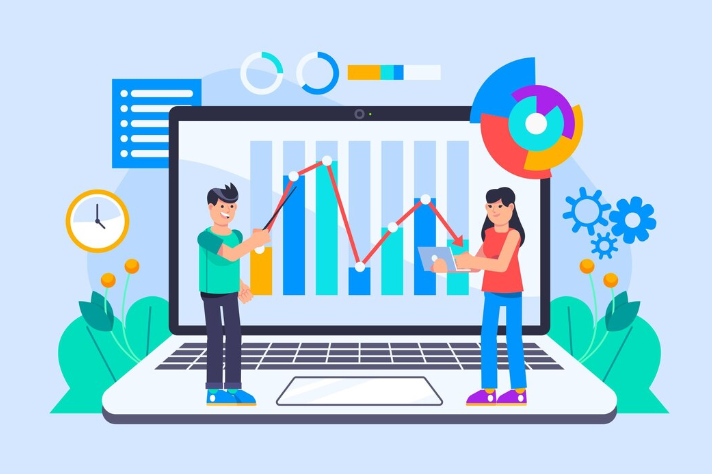Yield management is indeed a crucial factor in revenue generation within the hotel industry. It involves the strategic adjustment of prices and availability of rooms to maximize revenue from a perishable inventory such as the hotel rooms. Software revenue management (also known as revenue management system software or RMS software) plays an important role in various industries, including hospitality, airlines, car rentals, and more. Here is a guide to understand the key aspects of software revenue management and how revenue management system software helps to generate good revenue.
Generate Revenue With The Revenue Management System Software
Revenue management system software helps increase the revenue by minimizing the efforts and labor, results in good savings too.
- Dynamic Pricing: Revenue management system software allows hotels to adjust room rates based on various factors such as demand, seasonality, day of the week, events in the area, and booking patterns. By analyzing these factors, hotels can set optimal prices that maximize the optimal revenue. RM systems can segment customers based on different criteria (e.g., demographics, booking behavior) and apply personalized pricing strategies. This helps in targeting different customer segments effectively and capturing the maximum revenue from each segment.
- Maximizing Occupancy: Revenue management system software helps hotels optimize their occupancy rates by ensuring that rooms are priced attractively during low-demand periods to fill up the hotel. This prevents revenue losses from empty rooms and ensures a steady stream of income. By understanding demand patterns, businesses can adjust pricing and inventory levels proactively to meet expected demand, thereby maximizing revenue potential.
- Forecasting and Demand Management: Hotels use revenue management system software techniques to forecast demand accurately. By analyzing historical booking data and market trends, hotels can anticipate periods of high and low demand. This enables them to adjust prices and availability in order to capitalize on high-demand periods and stimulate demand during low seasons. Efficient management of inventory ensures that businesses are neither overbooked nor underutilized. RM systems help in balancing supply and demand dynamically, ensuring optimal utilization of resources.
- Segmentation and Differentiation: Software revenue management allows hotels to segment their market and differentiate pricing strategies accordingly. Hotels can offer different room categories or packages at varying price points to attract different customer segments (e.g., business travelers, tourists, families). This flexibility helps in catering to diverse customer needs while maximizing revenue from each segment.
- Competitive Advantage: Effective revenue management system software provides hotels with a competitive edge in the market. Hotels that implement robust yield management strategies can optimize revenue and profitability compared to competitors who may not be as dynamic in their pricing and availability strategies.
- Operational Efficiency: By managing pricing and inventory effectively, hotels can streamline their operations. This includes reducing overbooking risks, optimizing staffing levels based on expected occupancy, and improving overall revenue management processes.
Software revenue management is a fundamental practice in the hotel industry that directly impacts revenue generation. By leveraging data analytics, pricing strategies, and market insights, hotels can optimize their revenue potential, enhance guest satisfaction through competitive pricing, and maintain a healthy bottom line.
Overview of Software Revenue Management
Software revenue management involves using technological solutions to optimize pricing, inventory, and availability of products or services in order to maximize revenue. It typically utilizes algorithms and data analytics to make dynamic pricing decisions.
Key Functions
- Dynamic Pricing: Adjusting prices in real-time based on demand, competitor pricing, market conditions, and other factors to maximize revenue.
- Demand Forecasting: Using historical data and predictive analytics to forecast demand accurately, helping to set optimal pricing and inventory levels.
- Inventory Management: Revenue management system software helps the availability and allocation of products or services to balance supply and demand and avoid overbooking or underutilization.
- Segmentation: Tailoring pricing and availability strategies to different customer segments or market segments based on their willingness to pay and purchasing behaviors.
- Integration: Often integrates with other systems such as property management systems (PMS) in hotels or booking engines in airlines to automate pricing updates and inventory controls.
Benefits
- Revenue Maximization: Maximizes revenue by ensuring that products or services are priced optimally at any given time.
- Operational Efficiency: Automates pricing decisions and inventory management, reducing manual effort and human error.
- Competitive Advantage: Helps businesses stay competitive by responding quickly to market changes and optimizing pricing strategies.
- Data-Driven Insights: Provides valuable insights into market trends, customer behavior, and performance metrics, aiding in strategic decision-making.
Examples of Revenue Management System Software
- In the Hotel Industry: Examples include software like Duetto, IDeaS Revenue Management System, and Revinate. These platforms help hotels optimize room pricing based on demand, seasonality, competitor rates, and other factors.
- In the Airline Industry: Airlines use software such as Amadeus Revenue Management, Sabre AirVision Revenue Optimizer, and PROS Airline Revenue Management to dynamically adjust airfare prices based on factors like booking trends, seat availability, and route profitability.
- In Other Industries: Car rental companies use systems like EasyRentPro or TSD RENTAL for optimizing rental pricing and fleet management based on demand and availability.
Implementation Considerations
- Integration: Ensure the RMS software can integrate seamlessly with existing systems such as PMS, booking engines, or ERP systems.
- Customization: Look for software that can be customized to fit specific business needs and industry requirements.
- Training and Support: Adequate training and ongoing support are crucial to maximize the benefits of RMS software.
Software revenue management systems are powerful tools for businesses across various industries to optimize pricing strategies, manage inventory effectively, and maximize revenue potential through data-driven decision-making.
Aiosell helps provide the all-in-one hotel management software to maximize the results in less efforts. Book your 30-days free trial today!



